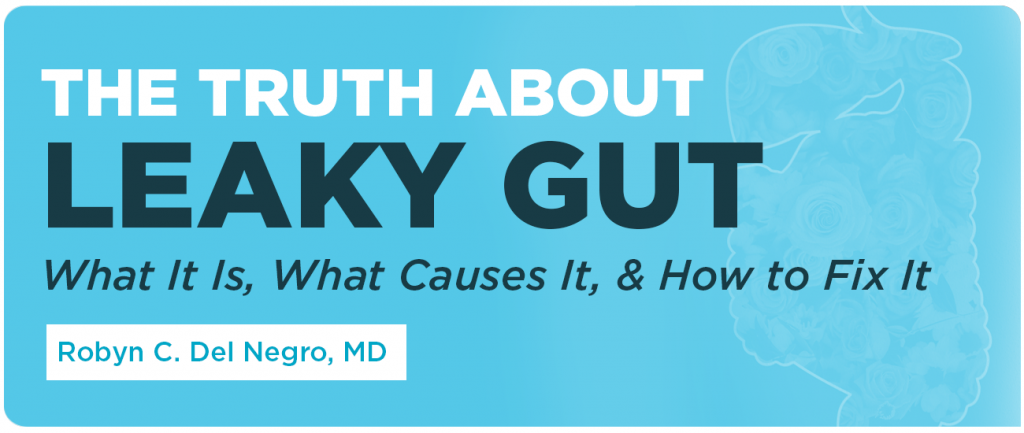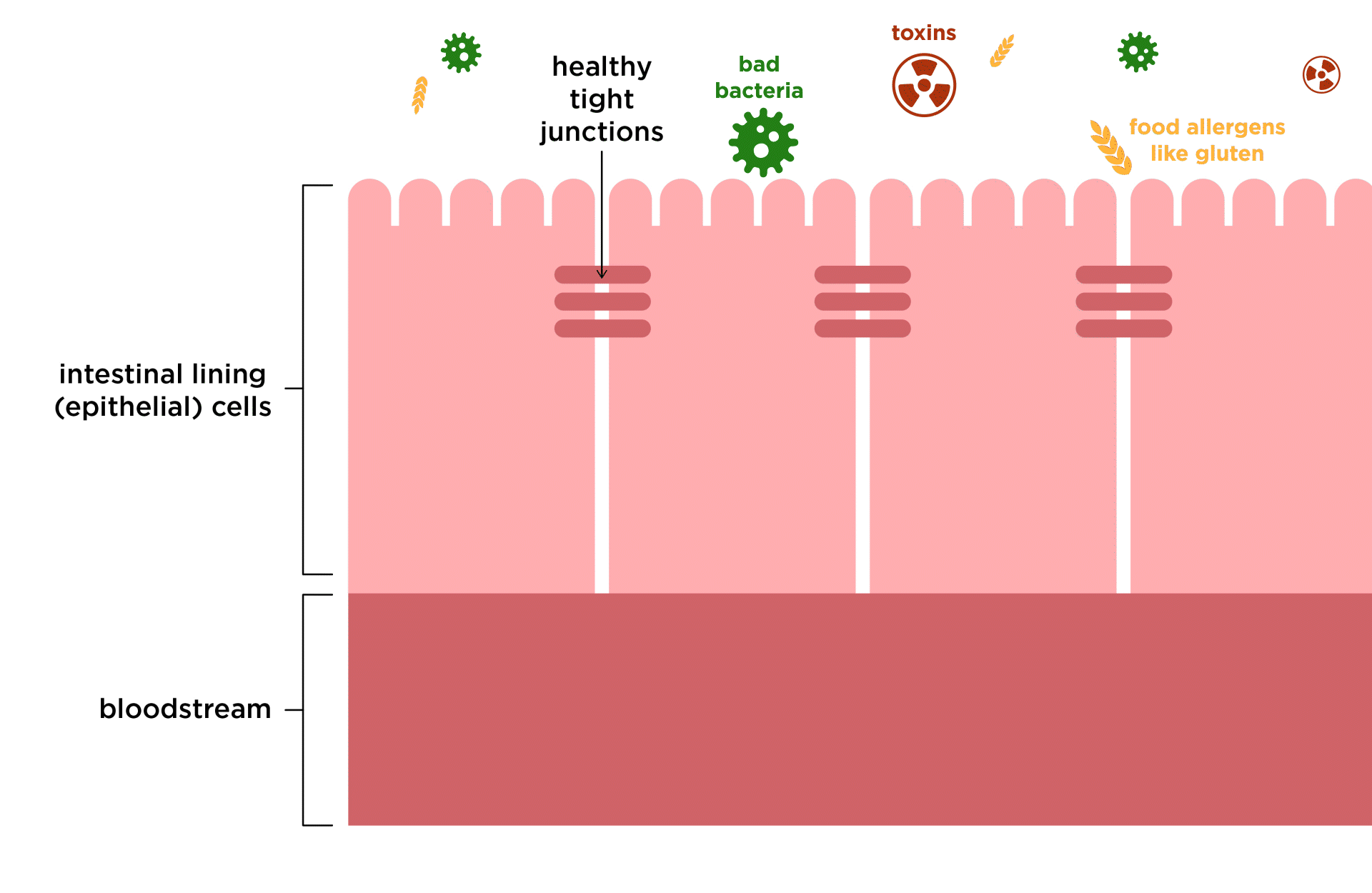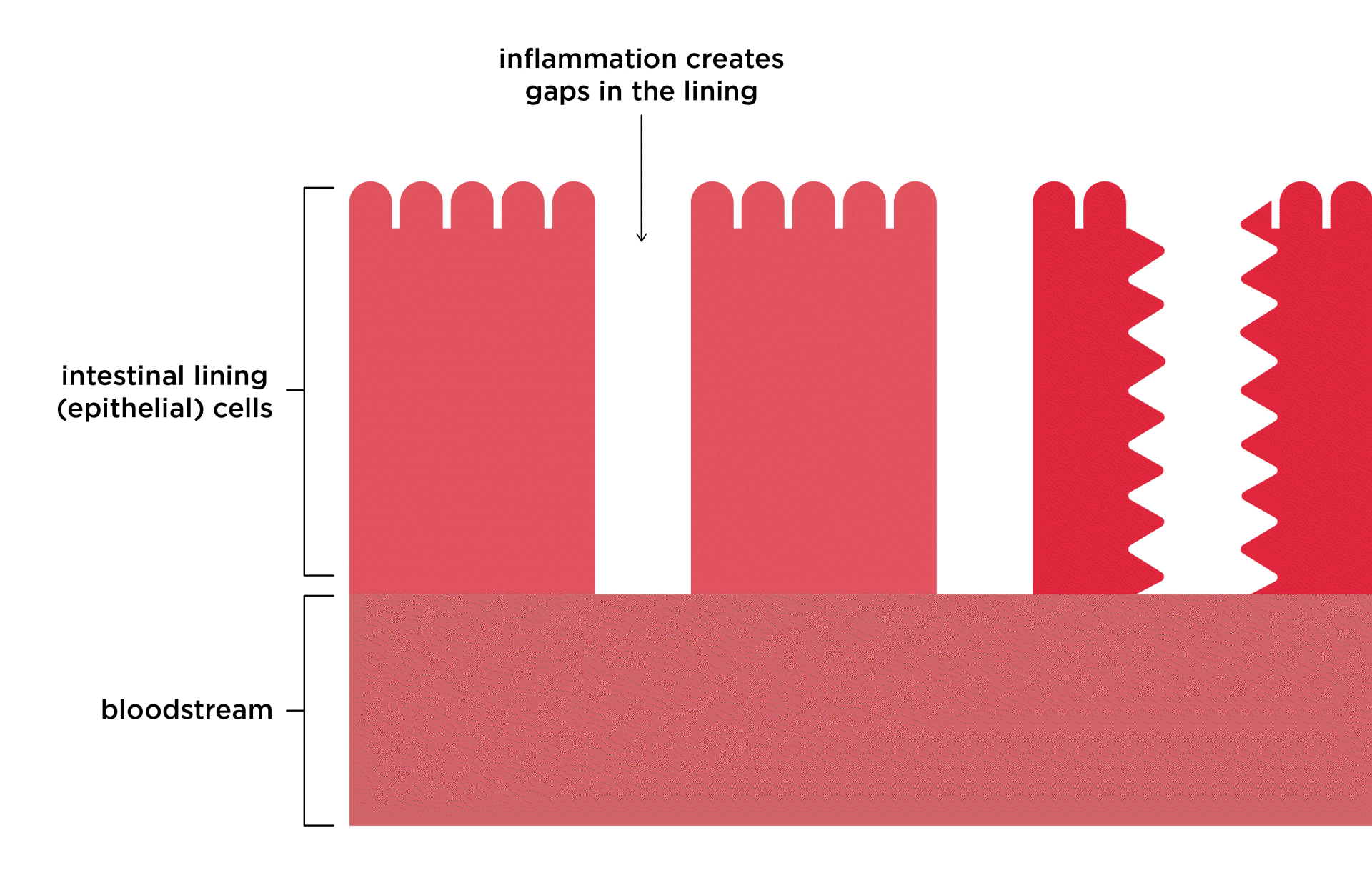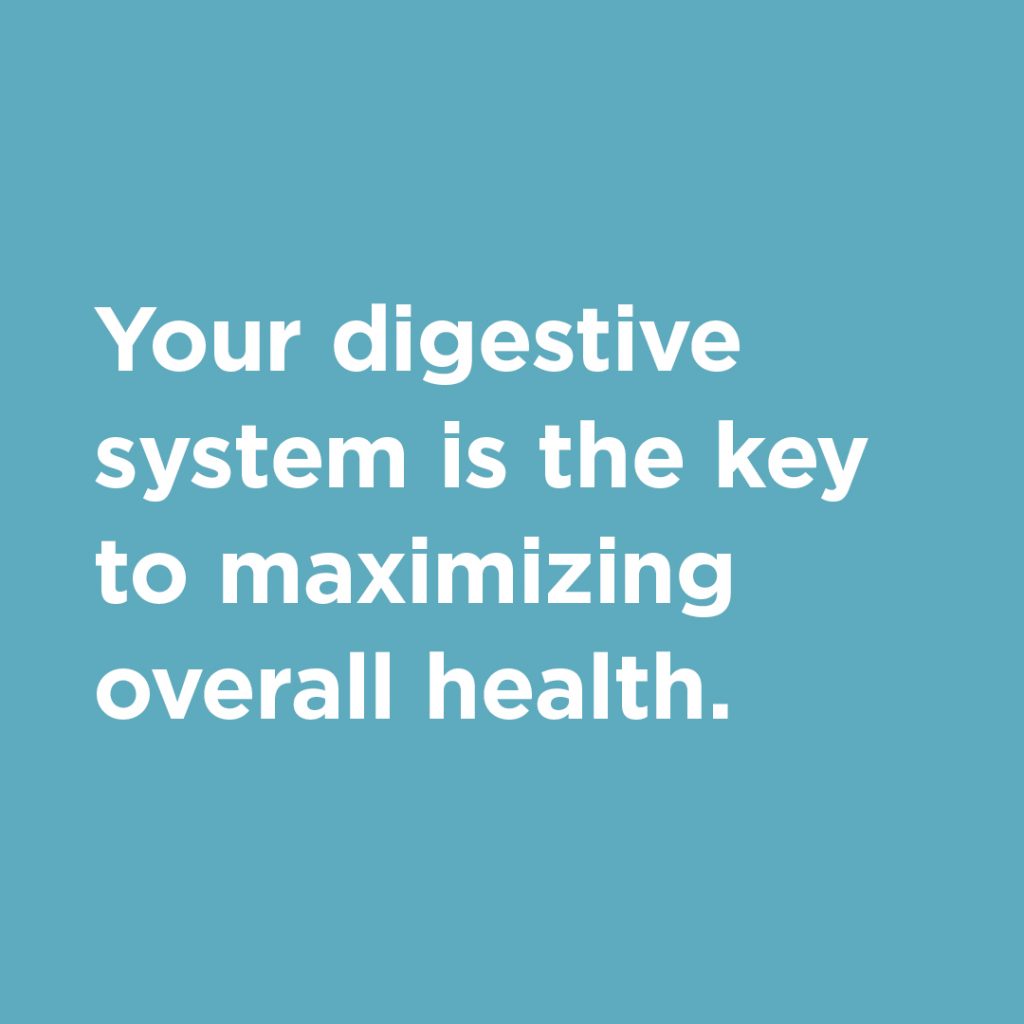
“All disease begins in the gut.” — Hippocrates, the father of modern medicine
Gut health and immune response are more connected than you may think. When your digestive system isn’t working properly, it affects every single system in your body, from cardiovascular to immune. Due to modern diets, medications, and chronic stress, leaky gut is becoming more common. Leaky gut, or increased intestinal permeability, is when the lining of your gut becomes more porous than it should be, allowing harmful substances to seep through that normally wouldn’t. It could be behind inflammation, food sensitivities, autoimmune conditions, and fatigue.
Making a few key lifestyle and diet changes can go a long way toward repairing and soothing your digestive system. Learn the causes of leaky gut, how it can impact your health, and the steps you need to take to heal it for good.
What Is Leaky Gut?
A leaky gut allows undigested food particles, toxins, and bad bacteria to “leak” into your bloodstream, which can prompt widespread inflammation in the body.
The only thing that separates your bloodstream from your entire digestive system is the lining that runs along the gut wall and stomach. Think of this healthy intestinal lining as a zipper barrier that selectively allows important nutrients to pass into your bloodstream. The gut microbiome, which is made up of beneficial “bugs,” is one of the many things the body has to maintain this barrier.

If the intestinal barrier is damaged and “unzips,” toxins, harmful bacteria, and undigested food particles enter the bloodstream; otherwise known as leaky gut.

Multiple health conditions have been associated with a leaky gut including depression, dementia, celiac disease, and gluten sensitivity, irritable bowel syndrome, insulin resistance, type 2 diabetes, cardiovascular disease, nonalcoholic fatty liver disease, headaches, skin rashes, autoimmune disorders, and food allergies.
Recognizing Symptoms of Leaky Gut
Digestive Issues
When the tight junctions in your intestines loosen, partially digested food particles, toxins, and microbes can leak into your bloodstream. This can irritate your digestive system and cause uncomfortable gut problems. Digestive issues encompass a range of symptoms, including bloating, gas, abdominal pain, diarrhea, or constipation. This could indicate that you have a leaky gut.
Food Sensitivities and Allergies
Do you feel ill after eating certain foods like gluten, dairy, or eggs? Food sensitivities are a common sign of a leaky gut. As food particles enter your bloodstream, your body sees them as foreign invaders and mounts an immune response. This can lead to symptoms like nausea, cramps, rashes, fatigue, and joint pain after eating trigger foods.
Nutritional Deficiencies
If you’re deficient in many nutrients, it may indicate you have an underlying gut issue. A leaky gut makes it difficult for your intestines to absorb key nutrients like B vitamins, vitamin D, zinc, and iron. Poor absorption of nutrients can lead to symptoms such as fatigue, depression, frequent illness, and skin problems.
Autoimmune Disease
A leaky gut is linked to autoimmune diseases like Hashimoto’s disease, rheumatoid arthritis, and lupus. When foreign particles enter your bloodstream, your body’s immune system goes into overdrive and starts attacking your own tissues. Reducing gut permeability may help relieve autoimmune flare-ups and symptoms.
If you experience several of these issues, you likely have a leaky gut.
Common Causes of Leaky Gut
Several factors can damage your intestinal lining and lead to leaky gut syndrome:
Chronic Inflammation
Chronic inflammation can disrupt the balance of beneficial bacteria in your gut. Long-term inflammation in the gut from conditions like Crohn’s disease, ulcerative colitis, or autoimmune disease can slowly break down the lining of your intestines.
Poor Diet and Processed Foods
Processed foods are often low in fiber and high in unhealthy fats, sugars, and additives. This type of diet can disrupt the balance of beneficial bacteria in our gut, leading to an imbalanced gut microbiota. A healthy gut microbiota is essential for proper digestion, nutrient absorption, and overall gut health.

Chronic Stress
When you experience chronic stress, your body releases stress hormones like cortisol. Elevated cortisol levels can affect the balance of beneficial bacteria in your gut, leading to dysbiosis (imbalance) and potential gut issues.
Overuse of Antibiotics and Medications
Most medications are taken by mouth. This means your gut has to break them down and process them to be absorbed into the bloodstream. You may already know this for antibiotics. While they’re doing the important job of killing bacteria that threaten your health, they also wipe out many of the beneficial bacteria living in your gut. This can also be true for over-the-counter pain reducers and birth control.
Healing Strategies for Leaky Gut
Dietary Changes
The more diverse your diet is, the more diverse your gut microbial composition will be.
Identify and manage any food intolerances that may contribute to digestive issues. Keep a food diary and work with a healthcare professional to pinpoint trigger foods and develop an appropriate dietary plan.
Adopt a gut-healing diet that can help restore balance and promote gut health.
- Organic meats (especially grass-fed beef and free-range chicken), fish and eggs provide protein and healthy fats without irritating your gut lining.
- Lots of leafy greens, colorful veggies, and fruits that are high in fiber, antioxidants and nutrients can repair your gut. Some good options include broccoli, spinach, carrots, blueberries and avocados.
- Fermented foods like yogurt, kefir, sauerkraut, and kimchi contain good bacteria called probiotics that can help restore balance to your gut microbiome.
- Healthy fats from sources such as olive oil, coconut oil, and avocados provide anti-inflammatory effects and help absorb fat-soluble vitamins.
- Avoid highly-processed foods, added sugar, gluten, and dairy which can trigger inflammation in the gut.
Stay Hydrated
Drink enough water throughout the day to maintain proper hydration and support healthy digestion. Water helps soften stool, prevent constipation, and promote overall gut health.
Manage Stress
Incorporate stress-reducing activities into your daily routine, such as meditation, deep breathing exercises, or yoga. Stress-relieving practices can be beneficial to calming stress and keeping the gut happier in the long run.
Probiotics
Probiotics are beneficial bacteria that support gut health. Remember not all probiotics are not created equal. Depending on if you are treating an active digestive concern or are on maintenance, the dosing needs to be adjusted. In addition, if you have SIBO (small intestinal bacterial overgrowth), taking a probiotic may actually make your symptoms worse.
Healing leaky gut and promoting gut health needs a multifaceted approach. Start making simple changes to your diet like reducing inflammation-causing foods and adding more gut-healing nutrients. Manage your stress levels with exercise, meditation, or yoga. Stay hydrated and get enough sleep. Consider supplements like probiotics, zinc, or fish oil for an extra boost.
The path to gut health may not always be easy, but making the right choices each and every day will have you well on your way to seeing improvements in digestive health, energy levels, mental clarity, and overall well-being.





